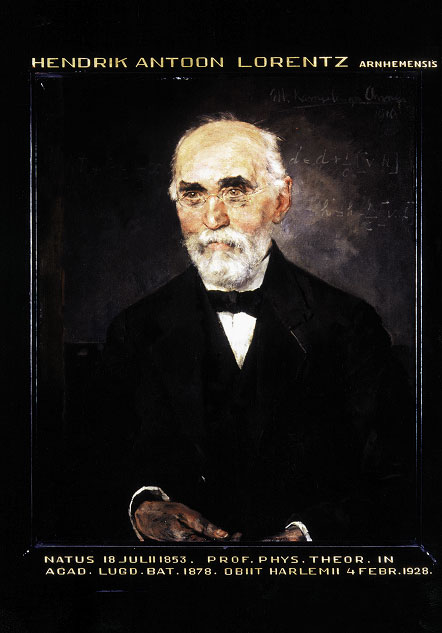|
Lorentz Institute
The Lorentz Institute ( nl, Instituut-Lorentz) is the institute for theoretical physics at Leiden University the Netherlands. It was established in 1921 and was named after physicist Hendrik Lorentz. Together with the experimental physics groups in the Kamerlingh Onnes Laboratory and the Huygens Laboratory, it makes up the Leiden Institute of Physics. The Lorentz Institute participates in two research schools: the Casimir Research School (jointly with Delft University of Technology Delft University of Technology ( nl, Technische Universiteit Delft), also known as TU Delft, is the oldest and largest Dutch public technical university, located in Delft, Netherlands. As of 2022 it is ranked by QS World University Rankings among ...) and the Dutch Research School of Theoretical Physics. External linksLorentz Institute website Research institutes in the Netherlands Hendrik Lorentz Research institutes established in 1921 {{Netherlands-stub ... [...More Info...] [...Related Items...] OR: [Wikipedia] [Google] [Baidu] |
Leiden University
Leiden University (abbreviated as ''LEI''; nl, Universiteit Leiden) is a Public university, public research university in Leiden, Netherlands. The university was founded as a Protestant university in 1575 by William the Silent, William, Prince of Orange, as a reward to the city of Leiden for its Siege of Leiden, defence against Spanish attacks during the Eighty Years' War. As the oldest institution of higher education in the Netherlands, it enjoys a reputation across Europe and the world. Known for its historic foundations and emphasis on the social sciences, the university came into particular prominence during the Dutch Golden Age, when scholars from around Europe were attracted to the Dutch Republic due to its climate of intellectual tolerance and Leiden's international reputation. During this time, Leiden became the home to individuals such as René Descartes, Rembrandt, Christiaan Huygens, Hugo Grotius, Baruch Spinoza and Baron d'Holbach. The university has seven academic f ... [...More Info...] [...Related Items...] OR: [Wikipedia] [Google] [Baidu] |
Hendrik Lorentz
Hendrik Antoon Lorentz (; 18 July 1853 – 4 February 1928) was a Dutch physicist who shared the 1902 Nobel Prize in Physics with Pieter Zeeman for the discovery and theoretical explanation of the Zeeman effect. He also derived the Lorentz transformation underpinning Albert Einstein's special theory of relativity, as well as the Lorentz force, which describes the combined electric and magnetic forces acting on a charged particle in an electromagnetic field. Lorentz was also responsible for the Lorentz oscillator model, a classical model used to describe the anomalous dispersion observed in dielectric materials when the driving frequency of the electric field was near the resonant frequency, resulting in abnormal refractive indices. According to the biography published by the Nobel Foundation, "It may well be said that Lorentz was regarded by all theoretical physicists as the world's leading spirit, who completed what was left unfinished by his predecessors and prepared t ... [...More Info...] [...Related Items...] OR: [Wikipedia] [Google] [Baidu] |
Delft University Of Technology
Delft University of Technology ( nl, Technische Universiteit Delft), also known as TU Delft, is the oldest and largest Dutch public technical university, located in Delft, Netherlands. As of 2022 it is ranked by QS World University Rankings among the top 10 engineering and technology universities in the world. In the fields of architecture and civil engineering, it was ranked 2nd in the world, after MIT (Massachusetts Institute of Technology). With eight faculties and numerous research institutes, it has more than 26,000 students (undergraduate and postgraduate) and 6,000 employees (teaching, research, support and management staff). The university was established on 8 January 1842 by William II of the Netherlands as a Royal Academy, with the primary purpose of training civil servants for work in the Dutch East Indies. The school expanded its research and education curriculum over time, becoming a polytechnic school in 1864 and an institute of technology (making it a full-fledged ... [...More Info...] [...Related Items...] OR: [Wikipedia] [Google] [Baidu] |
Research Institutes In The Netherlands
Research is " creative and systematic work undertaken to increase the stock of knowledge". It involves the collection, organization and analysis of evidence to increase understanding of a topic, characterized by a particular attentiveness to controlling sources of bias and error. These activities are characterized by accounting and controlling for biases. A research project may be an expansion on past work in the field. To test the validity of instruments, procedures, or experiments, research may replicate elements of prior projects or the project as a whole. The primary purposes of basic research (as opposed to applied research) are documentation, discovery, interpretation, and the research and development (R&D) of methods and systems for the advancement of human knowledge. Approaches to research depend on epistemologies, which vary considerably both within and between humanities and sciences. There are several forms of research: scientific, humanities, artistic, eco ... [...More Info...] [...Related Items...] OR: [Wikipedia] [Google] [Baidu] |



